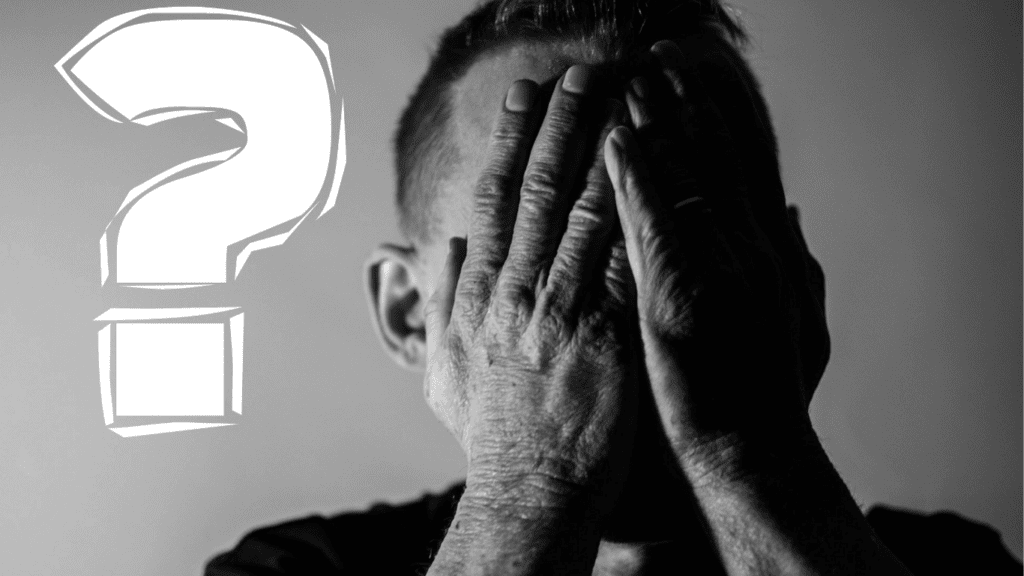The problem of evil asks how a good and all-powerful God can allow suffering and evil. Many have looked at this issue from both logical and emotional angles, with thinkers like Epicurus and Augustine giving different views. Solving this problem requires both theological and philosophical ideas to give a logical answer and support to everyday believers.
Are you ready to tackle one of the most challenging issues in religious philosophy and theology: the problem of evil?
From the desk of a theologian to the heart of a devoted believer, the question has echoed throughout the centuries.
Let’s plunge into the deep.
What is the Problem of Evil?

The problem of evil, you see, is a captivating yet troublesome query that stands tall in the fields of philosophy and theology.
When we talk about the problem of evil, we’re essentially referring to a set of questions, doubts, and debates that revolve around one key conundrum: If God, as traditionally defined, is all-knowing, all-powerful, and all-good, why does evil exist in the world?
This burning question has been kindling sparks in human minds for millennia, leaving trails of wonder and uncertainty.
Sounds like we’re dealing with a real head-scratcher, doesn’t it? But hold on, let’s take a step back and break it down to the basics.
Firstly, by “God,” we’re talking about the traditional Judeo-Christian understanding of God: a supreme, eternal being who is omniscient (all-knowing), omnipotent (all-powerful), and omnibenevolent (all-good). This God is believed to have perfect knowledge of everything, possess unlimited power, and is infinitely good, always acting in the best interest of His creation.
On the other hand, by “evil,” we’re referring to anything that causes harm, suffering, or distress. This could include natural disasters (like earthquakes or hurricanes), acts of injustice, personal tragedies, illnesses, or even moral wrongs like lying, stealing, or murder.
Now, the issue arises when we try to fit these two concepts together. If God is all-powerful, He should be able to prevent evil, right? If He’s all-knowing, He would certainly be aware of all the suffering. And if He’s all-good, He would surely want to stop it.
Yet, as we glance around, we can’t deny the fact that our world is riddled with evil and suffering. From minor inconveniences to major catastrophes, from personal heartbreaks to global injustices, evil is prevalent and persistent.
This, my friends, is the essence of the problem of evil. It’s a seemingly irreconcilable paradox that has puzzled scholars, shaken believers, and stimulated countless philosophical and theological debates.
Quite a brain-boggler, isn’t it? But remember, the toughest questions often lead to the most profound revelations.
If you love this post on the problem of evil, you will also love this shocking solution to the problem of evil.
Get 20+ online christian business training courses Free For 1 Month!
Grow A God Honoring Business With 20+ Courses, Weekly Live Coaching Calls, Live Group Chat, & More! Get Your First Month For FREE!

The Founder Of Clickmill Teaches You How To Find Biblical Success In Business.
The Logical Problem Of Evil
Kickstarting our journey into the problem of evil, we first confront the logical facet of this profound issue.
So, what’s the logical problem of evil all about? It’s a challenge that grapples with the notion of an all-loving, all-knowing, and all-powerful God coexisting with the persistent presence of evil.
To unravel this puzzle, let’s imagine for a moment that we’re in a world of geometry. Consider a triangle – you know, the three-sided figure that we’ve all drawn in our math classes. Now, picture this triangle having sides of unequal lengths. Something seems off, right? According to the principles of geometry, a triangle with unequal sides defies the definition of a regular triangle.
Similarly, when we consider the presence of evil in the world, it appears to contradict the existence of a perfect God. According to religious principles, God is supremely good, infinitely knowledgeable, and unquestionably powerful. This means that He would want to prevent evil (being all-good), know how to prevent evil (being all-knowing), and have the ability to prevent evil (being all-powerful).
However, when we open our eyes to the world around us, we’re confronted with a stark reality. Our world isn’t devoid of evil. Suffering, pain, and wrongdoing are far too common.
This existence of evil, then, seems to clash with the concept of a perfect God. It’s as if we’re trying to fit a square peg into a round hole. The two notions just don’t seem to align logically.
The logical problem of evil therefore questions: How can a God, defined as omnibenevolent, omniscient, and omnipotent, coexist with evil? It’s a conundrum that’s as intricate as it is profound.
Think of it like trying to solve a complex puzzle, where every piece needs to fit just right to reveal the bigger picture. In the case of the logical problem of evil, we’re still searching for the missing pieces to complete our understanding.
So, as we venture deeper into the heart of this issue, remember to keep an open mind. Sometimes, the most profound insights lie hidden within the most perplexing questions.
(For further reading: Closely related to this issue is whether or not God predestines evil and his relationship to it. You can learn more by reading about Calvinism, Molinism, and Arminianism. Each position has it’s own strengths and weaknesses.)
The Emotional Problem Of Evil

Moving on from the logical, we step into the realm of emotions.
The emotional problem of evil, you see, is a deeply personal, intensely poignant aspect of this theological and philosophical puzzle.
So, what exactly does the ’emotional problem of evil’ mean? In its simplest form, it’s the emotional distress, the gut-wrenching pain and confusion we feel when confronted with intense suffering and horrendous evil.
Imagine for a moment that you’re hit by a personal crisis – maybe it’s a heart-shattering loss of a loved one, a crippling illness, or an unfair turn of events that leave you reeling. Or perhaps it’s not a personal crisis but a global tragedy that has struck you – it could be a horrific act of violence halfway across the globe, a devastating natural disaster, or a sweeping pandemic causing widespread suffering.
In these moments, amidst the throbbing pain and gnawing confusion, you might find yourself questioning your faith. You might find yourself asking: “If God is good, why is this happening?” “Why is there so much pain?” “Why does God allow such suffering?”
That, my friends, is the emotional problem of evil in action. It’s the heartfelt cry of anguish that echoes in the silence of our souls when we confront the harsh reality of suffering in our world. It’s the existential angst that gnaws at our hearts, the moral outrage that flares up within us, and the profound sense of injustice that leaves us feeling lost and betrayed.
The emotional problem of evil is not about abstract philosophical debates or theological discourses. It’s about raw, personal experiences of pain and suffering that challenge our faith and shake our understanding of God.
It’s the personal journey that each of us embarks upon, the inner wrestle with faith and doubt, the struggle to reconcile the reality of our suffering with the belief in a loving, caring God. It’s a journey filled with questions, punctuated by moments of despair, yet often leading to profound growth and deeper understanding.
So, as you navigate the turbulent waters of the emotional problem of evil, remember, it’s okay to feel, to question, and to seek. After all, it’s these very questions, these very struggles, that make our journey of faith a deeply personal, profoundly transformative experience.
Get 20+ online christian business training courses Free For 1 Month!
Grow A God Honoring Business With 20+ Courses, Weekly Live Coaching Calls, Live Group Chat, & More! Get Your First Month For FREE!

The Founder Of Clickmill Teaches You How To Find Biblical Success In Business.
The Problem Of Evil: An Age-Old Argument
Let’s be clear about one thing – the problem of evil isn’t a fresh-faced newcomer in the philosophical and theological arena.
No, sir. It’s an old, seasoned player, its roots reaching deep into the annals of human thought and contemplation.
Ready to take a stroll down memory lane? Buckle up, because we’re going on a historical ride.
The problem of evil has been a consistent point of discussion throughout history, dating back to ancient civilizations. The earliest philosophers and theologians wrestled with the concept of evil and its implications for the divine.
In ancient Greece, Epicurus mulled over this very issue, birthing the famous Epicurean paradox that questions the coexistence of an omnipotent, omnibenevolent God and evil.
Later, in the fourth and fifth centuries, Saint Augustine, the early Christian theologian, wrestled with the nature of evil, pondering whether it was a creation of God or a byproduct of human free will. His work has had a lasting impact on Christian thought, shaping the way we perceive and approach the problem of evil.
Fast forward a few centuries, and you’ll see the problem of evil being dissected and debated by Enlightenment thinkers, scholars of the Reformation, and modern-day philosophers alike. From David Hume’s critique of the traditional understanding of God to Alvin Plantinga’s free will defense, the problem of evil has been examined from various angles and perspectives.
Through the centuries, the problem of evil has continued to inspire contemplation, fuel debates, and shape theological and philosophical thought. It has driven scholars to ponder, believers to question, and skeptics to challenge.
The problem of evil, in essence, is an age-old argument, a centuries-long conversation that spans across cultures, traditions, and epochs. It is as old as the question of God and as perennial as human experience itself.
From Epicurus’s garden to the halls of modern academia, the problem of evil has been, and continues to be, a compelling force in our quest to understand the divine amidst the realities of our human existence.
So, as we continue to navigate this complex issue, remember: we are part of a millennia-old dialogue, a testament to our collective human endeavor to seek, understand, and grow. Isn’t it fascinating to be part of such a grand conversation?
If you love this post on the problem of evil, you will also love this shocking solution to the problem of evil.
The History of the Problem of Evil

If the problem of evil were a book, its pages would be weathered and worn, filled with the thoughts and contemplations of great minds across millennia. It’s a tale as old as time, spanning eras and cultures, seeping into the minds of philosophers, theologians, and common folks alike.
So, shall we turn the pages and delve into the chronicles of the problem of evil?
Our journey begins in ancient times. The earliest recorded musings on the problem of evil can be traced back to the cradle of philosophy itself – Ancient Greece. Here, philosopher Epicurus posed his famous paradox, questioning how an all-knowing, all-powerful, and all-good God could permit evil in the world. This conundrum, known as the Epicurean paradox, would echo through the centuries, shaping much of the discourse on the problem of evil.
From the marbled halls of ancient Greece, we sail to the deserts of North Africa in the 4th and 5th centuries, where St. Augustine grappled with the nature of evil. Augustine rejected the notion that evil was a substance created by God, instead proposing that it is a perversion of good – a consequence of human free will. His thoughts, a cornerstone in Christian philosophy, provided a new perspective on the problem of evil, fueling further discussions and debates.
As we journey through the Middle Ages, the problem of evil finds itself entwined with theological and philosophical debates. Great thinkers like Thomas Aquinas tackled the issue, grappling with questions about God’s nature and the existence of evil.
The Enlightenment era, with its intellectual fervor, added a fresh perspective to the discourse. Philosophers like David Hume argued that the existence of needless evil challenges the traditional conception of God. His critique continues to shape contemporary discussions on the problem of evil.
In the 20th century, we see the problem of evil dissected and discussed with renewed vigor. Scholars like Alvin Plantinga proposed sophisticated defenses, including the famous Free Will Defense, attempting to reconcile the existence of evil with a theistic belief system.
Today, the problem of evil remains a vibrant topic of discussion, studied in philosophy classrooms and debated in scholarly journals. It’s a testament to our relentless human quest for answers, our yearning to reconcile faith with experience, and our profound need to make sense of suffering and evil.
In essence, the history of the problem of evil is a chronicle of human endeavor to seek understanding and meaning amidst the realities of life. It’s a story of our collective intellectual journey, a testament to our resilience and our insatiable curiosity. As we delve deeper into the problem of evil, we continue to add our thoughts, our questions, and our insights to this age-old conversation. Isn’t it fascinating to be part of this grand intellectual odyssey?
(Further reading: Another interesting and closely related question is how God’s relates to time and the evil that happens in time. This is known as the philosophy of time.)
Get 20+ online christian business training courses Free For 1 Month!
Grow A God Honoring Business With 20+ Courses, Weekly Live Coaching Calls, Live Group Chat, & More! Get Your First Month For FREE!

The Founder Of Clickmill Teaches You How To Find Biblical Success In Business.
Epicurus’ Dilemma
Setting our time machine to around 300 BC, we land in the bustling city-state of Athens, Greece, where our philosophical journey continues. We meet Epicurus, the man who gave us the Epicurean paradox, and one of the earliest thinkers to dive deep into the murky waters of the problem of evil.
Now, don’t be fooled by the simplicity of his argument. Like a small pebble creating ripples across a vast pond, his thoughts have reverberated throughout the centuries, leaving a lasting impact on the discourse around the problem of evil.
So, what exactly is Epicurus’s dilemma? It’s a philosophical poser that drills down to the heart of the problem of evil. The dilemma goes something like this:
Premise: If God is willing to prevent evil but is unable to do so, then he is not omnipotent.
Premise: If God is able to prevent evil but is unwilling to do so, then he is not benevolent.
Conclusion: If God is both willing and able to prevent evil, then why does evil exist?
Pretty hard-hitting, isn’t it?
This profound yet straightforward argument scrutinizes the paradox of evil’s existence in a world governed by an omnipotent, omnibenevolent God. In questioning God’s power and benevolence, Epicurus presents a compelling challenge to the traditional conception of divinity.
It’s like a thorn that pricks at our understanding of God, a nagging question that forces us to reassess our perceptions of the divine. In short, Epicurus’s dilemma stirs the pot, challenging long-held beliefs and inviting deep, contemplative thought.
So, as we ponder over Epicurus’s words, let’s appreciate the intellectual courage it takes to ask such probing questions. Remember, it’s these questions, these thought-provoking challenges, that drive our understanding forward, pushing us to seek deeper, seek better, and seek truth.
Augustine’s Approach
Time-traveling to the 4th century, we find ourselves amidst the stirring intellectual landscape of the late Roman Empire, where St. Augustine, a luminary in Christian theology, grappled with the problem of evil. His unique approach provided fresh insight into this age-old dilemma, echoing down the centuries and shaping Christian thought.
But, what did Augustine propose?
St. Augustine’s approach to the problem of evil was shaped by his faith in a benevolent and omnipotent God. He argued against the notion that evil was a creation of God. After all, how could a benevolent, all-powerful God create something harmful and malevolent?
Instead, Augustine proposed that evil is not an entity in itself, but a perversion or corruption of good – a result of human free will. Evil, to Augustine, was much like a shadow. Just as a shadow is not a thing in itself but rather an absence of light, evil is not a thing but an absence or corruption of good.
Imagine you’re holding a perfectly shaped apple in your hand. Now, imagine a worm eats into that apple, creating a hole. That hole, that absence of the apple, is akin to what Augustine saw as evil – not a thing in itself but a result of an action that diminishes goodness.
It was through human actions, Augustine argued, that evil entered the world. The misuse of free will – a gift from God – led to a departure from divine goodness, allowing evil to take hold.
By situating the source of evil in human free will, Augustine offered a way to reconcile the existence of evil with an all-good, all-powerful God. His theory serves as a compelling response to Epicurus’ dilemma, providing a foundation for subsequent Christian thought on the problem of evil.
And so, as we explore Augustine’s approach, we find ourselves wrestling with the profound implications of free will, the nature of evil, and our own role in the dance between good and evil. It’s a challenging but illuminating journey, wouldn’t you say?
Get 20+ online christian business training courses Free For 1 Month!
Grow A God Honoring Business With 20+ Courses, Weekly Live Coaching Calls, Live Group Chat, & More! Get Your First Month For FREE!

The Founder Of Clickmill Teaches You How To Find Biblical Success In Business.
Interpreting the Problem of Evil

Interpretation is the soul of understanding, and when it comes to the problem of evil, there’s a rich tapestry of interpretations woven through the ages. From the loftiest heights of theology to the heart-rending struggles of everyday believers, the problem of evil is a kaleidoscope of views, opinions, and experiences.
In other words, it’s a giant jigsaw puzzle with countless pieces. Shall we start piecing it together?
On one end of the spectrum, we have theological interpretations that attempt to reconcile the existence of evil with the nature of God. St. Augustine’s view, which we discussed earlier, is a prime example. He interprets evil as a perversion of good, a by-product of human free will.
Then there’s the theological argument of ‘soul-making.’ Proposed by John Hick, this approach interprets evil as a necessary condition for the growth and development of the soul. It’s like the fire that tempers steel, refining and strengthening our spiritual selves.
On the other end of the spectrum, we find the interpretations of skeptics and atheists. They often view the problem of evil as a decisive argument against the existence of a benevolent, omnipotent God. Remember Epicurus’s dilemma?
And somewhere in between, we find the interpretations of everyday believers. For some, the existence of evil challenges their faith, causing them to question and wrestle with their beliefs. It’s like a storm that shakes the roots of their faith tree.
For others, the problem of evil inspires a deeper, more nuanced understanding of their faith. They interpret trials and sufferings as tests, opportunities for spiritual growth and transformation. Like gold refined in the furnace, their faith emerges stronger and purer from the crucible of suffering.
As you can see, the problem of evil has been interpreted and reinterpreted, dissected and pondered upon, through various lenses and from multiple perspectives. Each interpretation adds a unique piece to the puzzle, enriching our understanding of this complex issue.
Theological Perspectives & A Logical Solution

The problem of evil has been a central conundrum in theology, sparking an array of interpretations and leading to the development of some groundbreaking theological arguments. In this labyrinth of thought, two prominent interpretations stand out: the concept of ‘greater good’ and the emphasis on human free will. Shall we explore?
At the core of these theological perspectives is an attempt to reconcile the existence of an all-powerful, all-loving God with the stark reality of evil. It’s a bit like trying to fit a square peg in a round hole, isn’t it? Well, let’s see how theologians have approached this challenge.
The concept of the ‘greater good’ or theodicy has been a popular approach in the past century. Often attributed to philosophers like John Hick and Alvin Plantinga, the ‘greater good’ argument posits that evil and suffering, as paradoxical as it sounds, are necessary ingredients in God’s plan to bring about a greater good.
It’s like the labor pains before the joy of childbirth or the painful workout that leads to a healthier body. The suffering, though real and often intense, ultimately contributes to a higher purpose.
This ‘greater good’ argument doesn’t trivialize or ignore the reality of evil. Instead, it views it as part of a larger cosmic tapestry, woven by divine hands. Each thread of suffering, though individually painful, contributes to the overall beauty and goodness of the final tapestry.
Over the past century, this interpretation has gained widespread acceptance among philosophers and theologians. It provides a logical solution to the problem of evil that aligns with the nature of a benevolent God. It affirms the goodness of God while acknowledging the presence of evil, painting a picture of a divine plan that surpasses our finite understanding.
On the other hand, the emphasis on human free will, like the approach of St. Augustine, presents another theological interpretation. This perspective asserts that evil is not God’s creation but a result of human misuse of free will. We, as humans, are not mere puppets in a divine play but free agents capable of choosing good or evil.
From this viewpoint, evil emerges not from God’s will but from human choices that deviate from the divine will. This interpretation upholds the goodness and omnipotence of God while highlighting human responsibility for the existence of evil.
In essence, the theological perspectives on the problem of evil illuminate the complexity of the issue. They challenge us to broaden our perspectives, to explore the intersections of divine will and human freedom, and to grapple with the paradoxes of faith. It’s a journey of exploration and discovery, a quest for understanding in the labyrinth of theological thought. Isn’t that an adventure worth embarking on?
Get 20+ online christian business training courses Free For 1 Month!
Grow A God Honoring Business With 20+ Courses, Weekly Live Coaching Calls, Live Group Chat, & More! Get Your First Month For FREE!

The Founder Of Clickmill Teaches You How To Find Biblical Success In Business.
Philosophical Views
The problem of evil has been a veritable hotbed of philosophical inquiry, provoking thinkers from different eras and cultures to weigh in on this confounding issue. It’s like a multi-dimensional chess game with philosophers offering moves and counter-moves, each adding depth and texture to the discourse.
So, what are some of the philosophical views on the problem of evil? Let’s dive in.
Some philosophers argue that the existence of evil negates the possibility of a benevolent, omnipotent God. This argument, reminiscent of Epicurus’s dilemma, posits that a truly all-loving, all-powerful God would eliminate evil. The fact that evil persists, they argue, implies either God’s lack of power, lack of benevolence, or, more drastically, God’s non-existence.
It’s like a jigsaw puzzle where the pieces just don’t seem to fit. The presence of evil appears to conflict with the picture of a benevolent, omnipotent God, leading some philosophers to question the validity of this picture altogether.
On the other hand, some philosophers propose that evil might be a necessary component in a larger divine scheme. This view aligns with the ‘greater good’ argument discussed in the theological perspectives. Evil and suffering, though difficult to swallow, might serve a higher purpose, contributing to the ultimate good.
Think of a bitter pill. It tastes unpleasant, even harsh, but it can cure the disease, right? Similarly, evil, though painful and hard to comprehend, might play a role in achieving a larger, more beneficial outcome.
This argument offers a different lens to view the problem of evil, allowing for the co-existence of a benevolent, omnipotent God and the reality of evil. It’s a solution that fits the jigsaw puzzle pieces together, painting a coherent picture that acknowledges the complexity of divine reality.
So, whether we lean towards the skeptic’s stance or adopt the ‘greater good’ view, exploring these philosophical perspectives on the problem of evil is a stimulating intellectual exercise. It encourages us to wrestle with challenging questions, explore diverse viewpoints, and broaden our understanding. And isn’t that what the journey of knowledge is all about?
The Everyday Believer’s Struggle

The problem of evil isn’t merely an intellectual exercise, confined to ivory towers and philosophical treatises. It is an existential struggle that touches the lives of everyday believers, a complex maze they navigate when they face pain, suffering, and injustice. It’s the nagging question that keeps you up at night, the silent prayer you whisper in the face of despair.
So, what does the problem of evil look like in the trenches of daily life? Let’s explore.
Ever faced a moment of deep suffering and found yourself asking, “Why is God allowing this to happen?” It might have been a personal crisis, like the loss of a loved one, a severe illness, or a crushing disappointment. Or it could have been a global catastrophe, a war, a pandemic, or a natural disaster.
These moments of pain and hardship often force us to confront the problem of evil. We grapple with the apparent contradiction between the existence of a loving, powerful God and the harsh realities of our world.
It’s like being in a dark tunnel, isn’t it? You know there’s light at the end, but the darkness surrounding you is overwhelming. The question “Why does God allow this?” becomes your constant companion, a persistent echo in the caverns of your heart.
For some believers, these struggles might cause them to question their faith, to feel abandoned or betrayed by the God they trusted. It’s as if the foundations of their spiritual house are shaking, threatening to collapse under the weight of their pain.
For others, these trials lead them to a deeper, more profound understanding of their faith. They see their sufferings as opportunities for spiritual growth, for forging a stronger, more resilient faith. It’s like the refiner’s fire that purifies gold, removing the impurities and enhancing its beauty and value.
And then, there are those who find solace and strength in the community, in the shared stories of pain and redemption, in the collective grappling with the problem of evil. They discover that they are not alone in their struggle, that their questions, their doubts, their pain are shared experiences. It’s as if they’re part of a chorus, singing a song of faith that resonates with the harmonies and dissonances of life.
In essence, the everyday believer’s struggle with the problem of evil is a journey, a spiritual odyssey filled with questions, doubts, revelations, and transformations. It’s a tough road to travel, no doubt, but it’s also a journey of growth, discovery, and ultimately, of hope. And isn’t that something to hold on to?
Get 20+ online christian business training courses Free For 1 Month!
Grow A God Honoring Business With 20+ Courses, Weekly Live Coaching Calls, Live Group Chat, & More! Get Your First Month For FREE!

The Founder Of Clickmill Teaches You How To Find Biblical Success In Business.
Problem Of Evil – Frequently Asked Questions
- What exactly is the problem of evil?
The problem of evil is a philosophical and theological quandary that grapples with the seemingly paradoxical existence of an all-good, all-knowing, and all-powerful God, alongside the reality of evil and suffering in the world. - Can you explain Epicurus’ Dilemma in relation to the problem of evil?
Epicurus’ Dilemma is an early expression of the problem of evil. Epicurus presented a thought-provoking question: if God is willing but incapable of preventing evil, can He genuinely be considered omnipotent? - How did Augustine approach the problem of evil?
Augustine adopted a unique perspective on the problem of evil. He argued that evil is not a direct creation of God. Instead, it arises from human free will. He equated evil to a shadow—it exists not as an independent entity, but as a void, an absence of light. - What are some ways to cope with the problem of evil?
Strategies for dealing with the problem of evil are as diverse as individuals themselves. Some people might find comfort and understanding through theological or philosophical studies. Others might turn to personal spiritual practices like prayer or meditation. Some may seek solace and shared understanding within a supportive community. - Why is the problem of evil such a significant issue?
The problem of evil is vital because it touches upon one of the most profound and challenging dilemmas within religious belief systems. It compels exploration, fosters understanding, and opens a dialogue—thus promoting growth in both personal faith and philosophical comprehension. - What is the ‘greater good’ argument in theology?
The ‘greater good’ argument, or theodicy, proposes that evil and suffering are necessary parts of God’s plan to bring about a greater good. Just like a bitter pill can cure a disease, evil might play a role in achieving a higher, divine purpose. - How does the problem of evil affect everyday believers?
The problem of evil can deeply impact everyday believers, often prompting them to question their faith during times of personal crisis or global tragedies. It can lead to growth in faith or, in some cases, feelings of abandonment or betrayal. - What are some philosophical views on the problem of evil?
Philosophers have presented various perspectives on the problem of evil. Some argue that the existence of evil disproves a benevolent, omnipotent God. Others suggest that evil might be necessary for a larger divine plan, contributing to the ultimate good. - What role does human free will play in the problem of evil?
Human free will is often emphasized in theological interpretations of the problem of evil. This perspective asserts that evil is not a creation of God, but a result of humans misusing their free will. - What are the emotional and logical aspects of the problem of evil?
The emotional problem of evil refers to the personal distress and heartache experienced when confronting suffering. The logical problem of evil contends that it’s logically impossible for an omnibenevolent, omniscient, and omnipotent God to exist while evil is present in the world.
Question: In light of our discussion on the problem of evil, how do you reconcile the existence of a benevolent, omnipotent God with the reality of suffering and evil in the world? Share your thoughts and perspectives in the comments below.


Responses